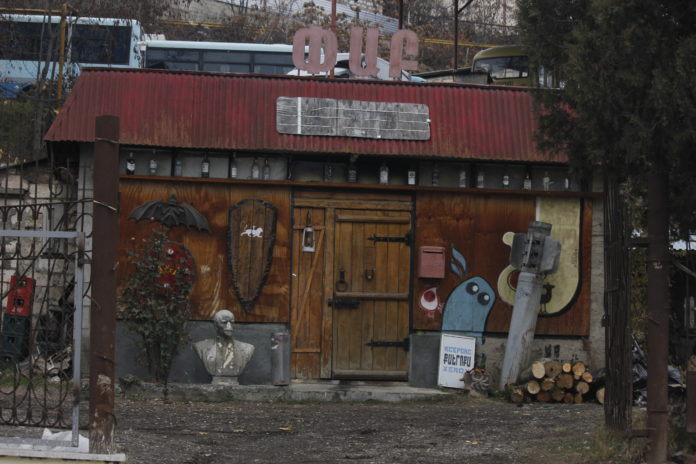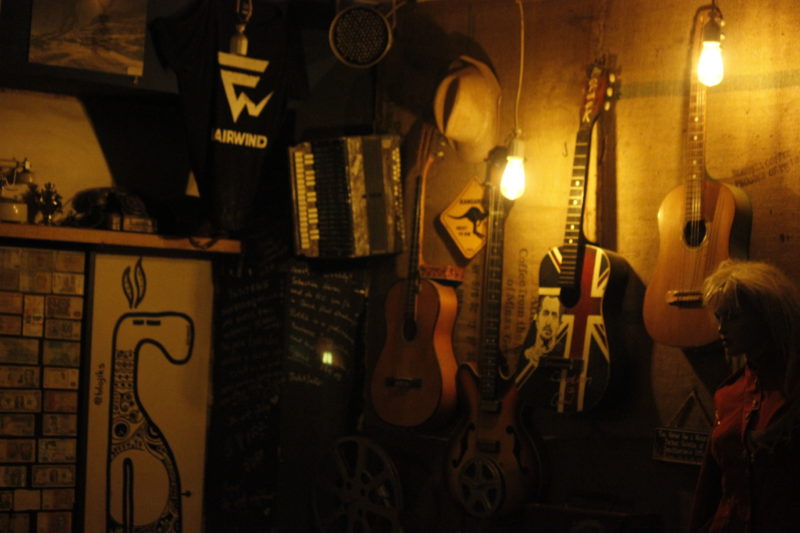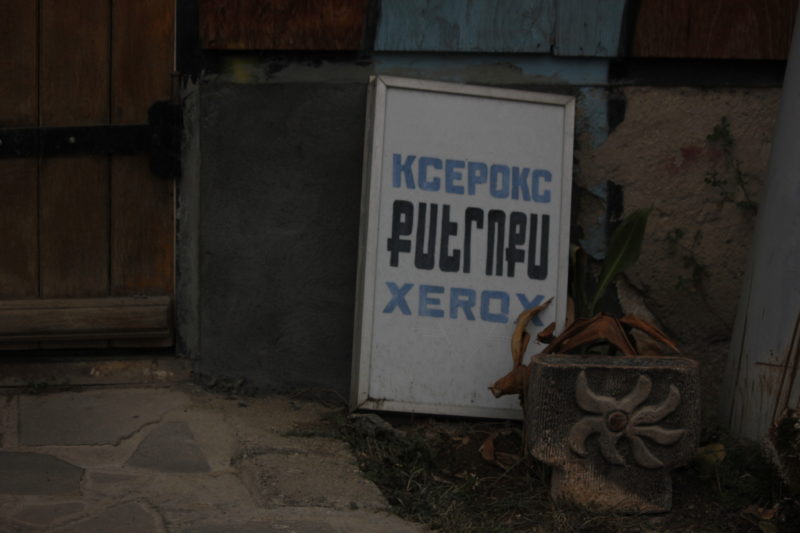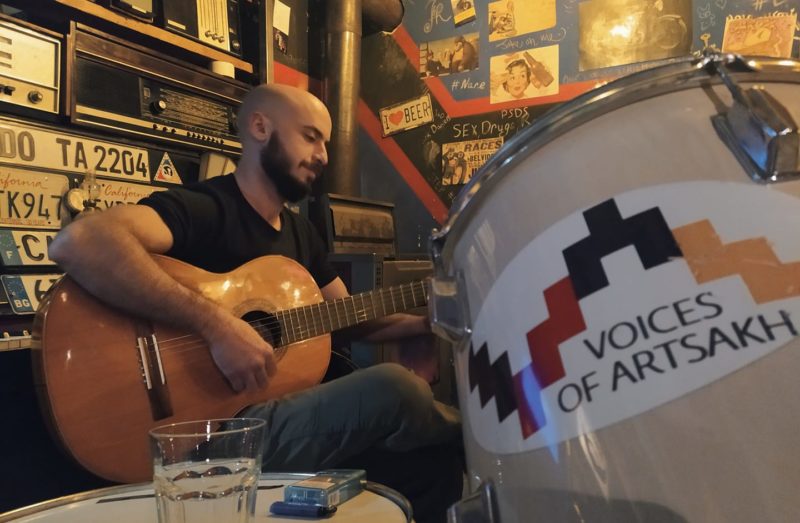STEPANAKERT — “I was named after my grandfather, and my name says a lot about me,” says Azat Adamyan, the owner of the popular pub Bardak, located on the outskirts of Stepanakert, near the highway to Shushi. The pub outgrew a humble business initiative to become an inalienable part of social life in Stepanakert. For Azat, who made an old garage into a center for local youth, Bardak is a lifestyle, rather than merely a business.
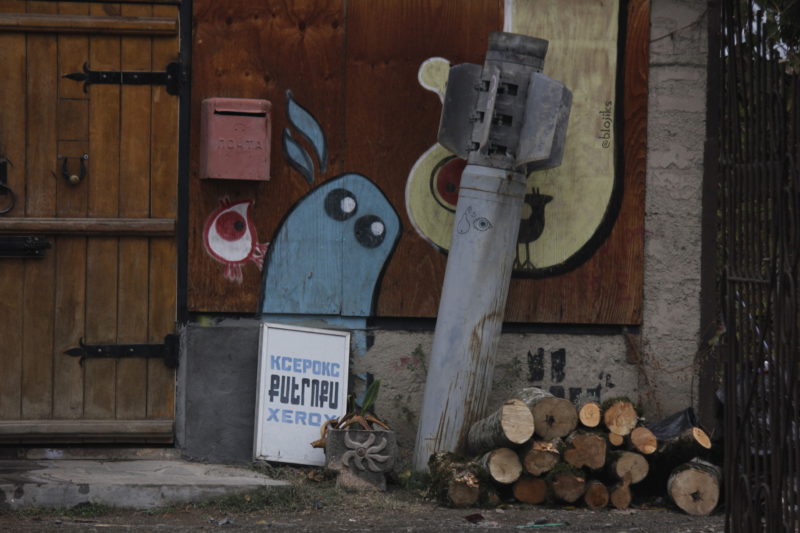
Bardak is a small compact building painted dark blue inside, in which numerous musical instruments nestle, including acoustic guitars, and colorful sign boards, foreign flags and banknotes adorn the walls, accompanied by writings in the most varied languages. These are usually in the form of sticky notes that visitors leave to immortalize their visit to Bardak and add a final touch to the decorations. A statue of the formidable Lenin, an old dusty xerox sign and a decommissioned Smerch rocket stand near the entrance, all brought from different places in Artsakh that are now taken over by Azerbaijan.
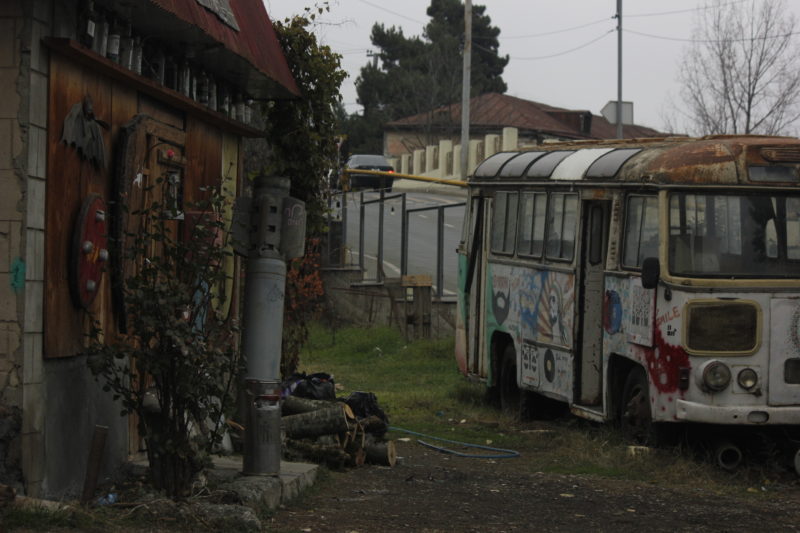
Bardak translates from Russian as “mess,” and that is how its owner interprets his brainchild. Its aim is to gather together the youth and adults, locals and tourists, musicians and dancers, in an affable ambience suited perfectly for friendly talks, chants and fiery dances.
“After the war of 2016, I decided to initiate a start-up in Stepanakert to prove that life still can keep going on,” says Azat. “Even though 2016 was pretty light compared to the events of 2020, incredibly many people were affected, hurt or heartbroken, and I wished to invigorate them somehow.” However, this was not the Azat’s first business idea; he had managed to found an extreme tourism club previously. Instead of a new office for that enterprise, he invested into the creation of Bardak which played an important role in shaping his personality.
Azat didn’t intend to run a pub, as his initial idea was to create a cozy space to hang out with friends. In its early stages, Bardak was familiar only to Azat’s friends, who would often drop by for a cup of coffee. But as time passed, the place became more popular and beloved by the youth, and it gradually evolved into a go-to recreation area where one can have cocktails, sing accompanied by guitar and make new acquaintances.
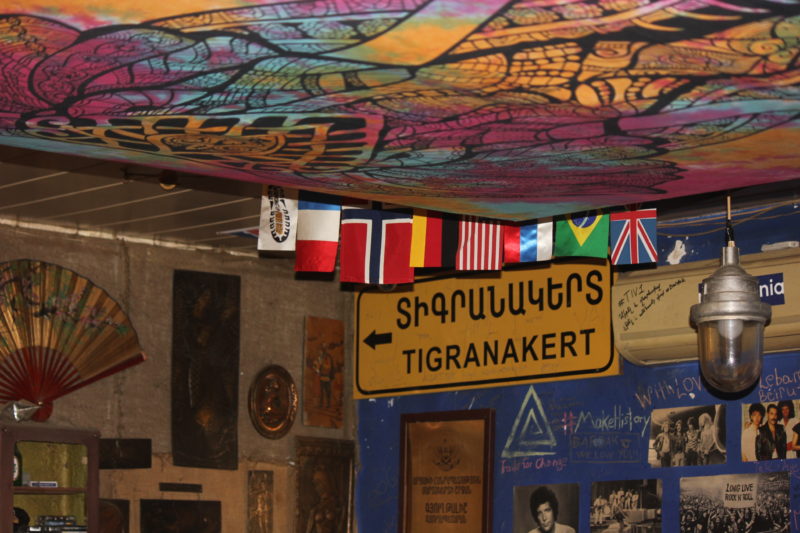
“When I entered the old garage with a friend of mine, I resolved that I will name it after the very first thing that comes to the tip of my tongue,” says Azat, and his first impression of the incomplete building was a mess, or “bardak” in Russian. Today, an exquisite black motorcyle is standing near the pub which always draws guests’ attention. It is one of the very first props to become one of the many symbols of Bardak, including Azat with his helmet.



